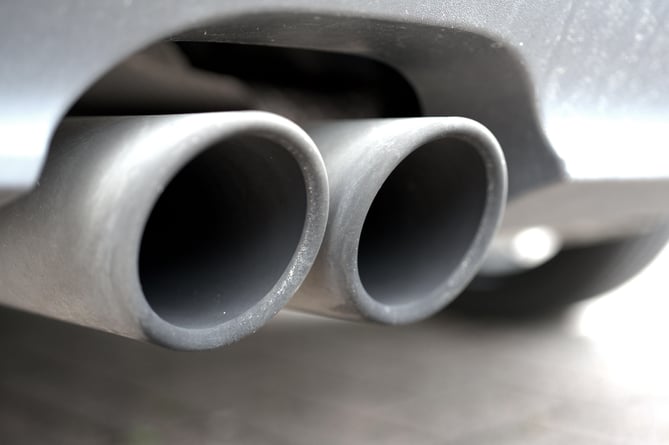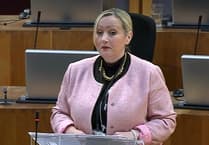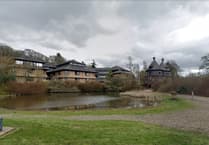Drivers could face pollution charges on the M4 and major A roads in future after a proposed clean air law was backed by the Senedd.
Julie James, Wales’ climate change minister, stressed that the Welsh Government currently has no plans to introduce such charges.
But the bill would expand ministers’ powers to bring in charges in pollution hot spots, such as the M4 at Newport and the A470 near Pontypridd where 50mph zones are in place.
Ms James said: “I do understand concerns about schemes that will impose additional charges on motorists.
“MSs will, I'm sure, be familiar with the kind of public objections expressed about clean air zones in some English cities and, of course, in London's expanded ultra low emissions zone.
“These schemes are not punitive measures introduced to make the lives of motorists more difficult …. These schemes have been introduced as a necessity to make a step change improvement in air quality.”
‘Unjust’
Conservative amendments to remove road charging powers from the Environment bill were voted down by MSs.
Janet Finch-Saunders, the Conservatives’ shadow minister, argued that giving people a penalty for driving when there is no feasible alternative is unreasonable and unjust.
She told the Senedd: “We do need to cut down our reliance on cars and we need to walk more, we need to cycle more, and we need to be able to use public transport where we can.
“But, in some instances, that is not an option, and cars are the only option. So many people commute from areas where public transport is poor, and that is because of your government's failure to adequately support public transport.
“In fact, at a time when bus services are being cut, isolating communities, these extra powers to potentially charge people going to work, people going to care for people and lots of other people using their cars –it may be taking children to school where they have to.”
She said a public survey, carried out by the Senedd’s climate committee, found that 92% of people disagreed with wider powers to introduce trunk road charging.
A Senedd petition – which urges the Welsh Government to scrap plans for further road charging – has attracted nearly 7,000 signatures.
Nitrogen dioxide
The bill also introduces a duty on reducing fine particulate matter (PM2.5) which contributes to around 1,600 deaths in Wales each year, according to Public Health Wales.
A Plaid Cymru amendment to introduce a similar target for reducing nitrogen dioxide – which is said to contribute to more than 1,100 deaths a year – was defeated.
Delyth Jewell, the party’s shadow minister, told MSs: “I believe that this is crucial for safeguarding human health in Wales, because nitrogen dioxide pollutants pose significant risks to us, both respiratory and cardiovascular.
“Thus, introducing a specific target for nitrogen dioxide would be an urgent way of responding to those risks.
“This is an amendment that, again … is particularly vital for vulnerable populations like children, the elderly and people with pre-existing health conditions, who are disproportionately affected by air pollution.
“So, this would promote environmental justice and ensure that equal protection for all communities is promoted, regardless of people's socioeconomic status.”
After a tied vote, the speaker, Elin Jones, used her casting vote against the amendment in line with Senedd rules.
Smoke control
Two Conservative amendments were agreed on ensuring councils publish an online notice notifying households who have a fireplace about new smoke control orders.
Jane Dodds, the Lib Dem leader in Wales, backed the changes due to the high number of households not connected to the grid in Wales.
The Mid and West Wales MS said legislation is only effective if people can feasibly comply.
“For those living in our rural areas off-grid, solid-fuel wood burners represent a significantly cheaper form of energy,” she said.
Labour’s Huw Irranca-Davies, who chairs the cross-party group on active travel, secured amendments on promoting active travel as a way of reducing or limiting air pollution.
Rhys ab Owen’s amendment on indoor air quality was rejected during the stage-three debate on Tuesday, 21 November.
The bill now moves to stage four which will see MSs hold a vote on the amended version.




